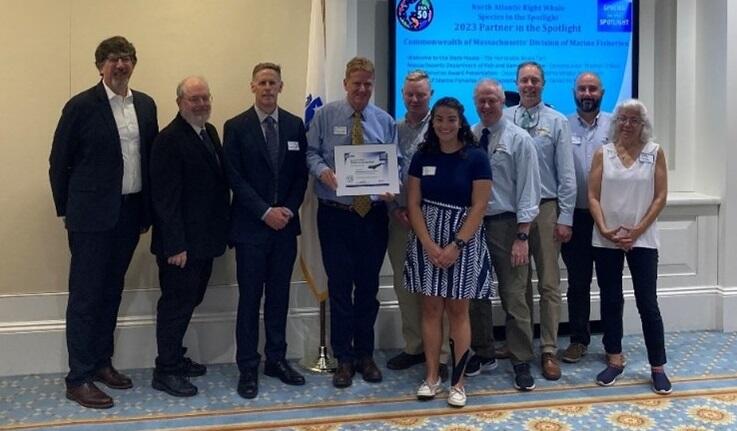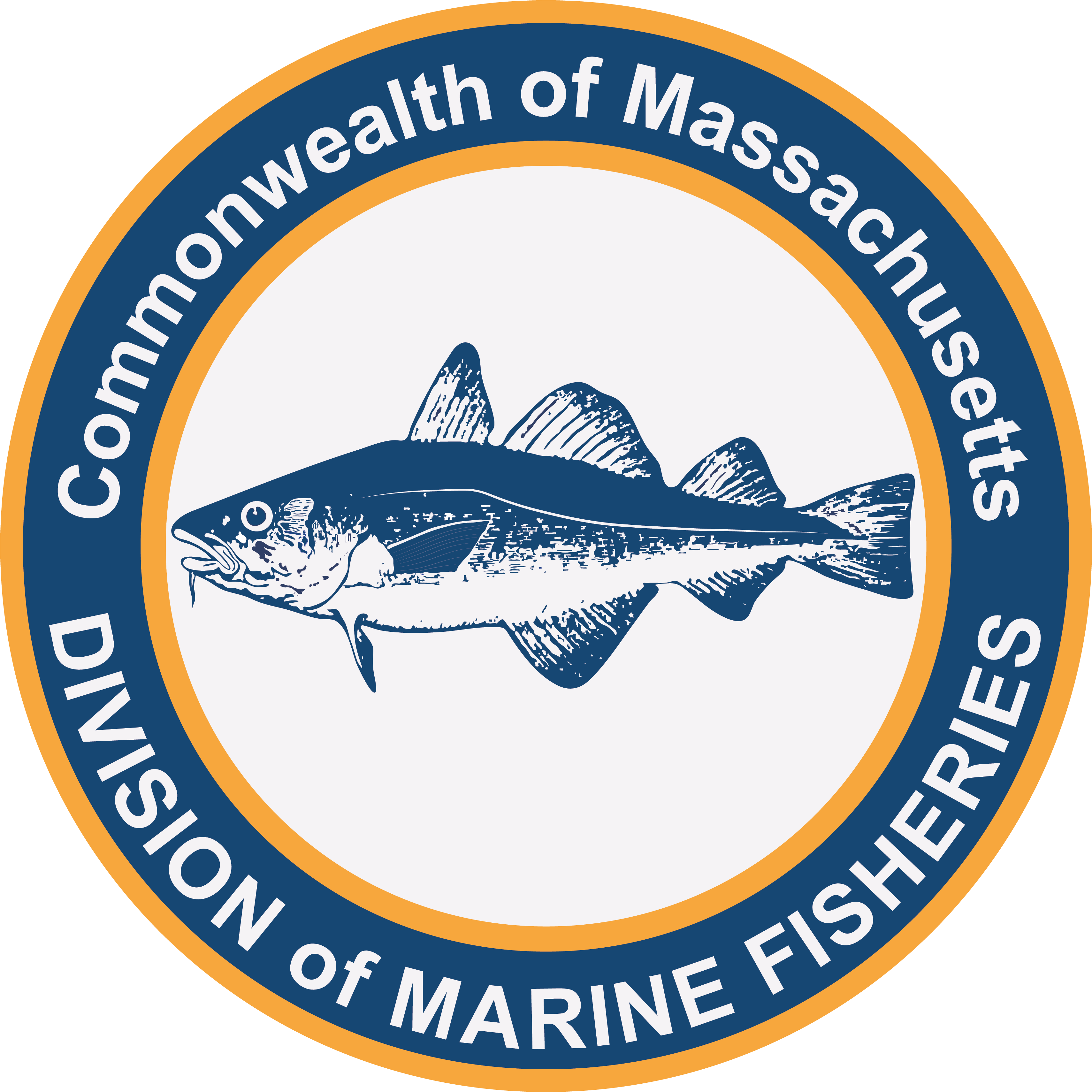- Division of Marine Fisheries

In October 2023, the National Marine Fisheries Service (NMFS) released an updated population estimate for the endangered North Atlantic right whale. Estimates of right whale abundance are generated from sightings data, which take time to process, thus previous estimates can be updated as analyses are completed. Data processed in 2023 allowed revised population estimates for 2021 and 2022, which resulted in an increased number of animals known to be alive. The population estimate for 2022 is approximately 356 animals. Although that is a slight decline from the 2021 estimate of 364 animals, the downward trend in the right whale population observed from 2015-2019 appears to be leveling off, likely due to reduced mortality and increased calving. While the right whale still faces significant threats from human impacts, the slowing of the sharp decline in right whale abundance is a positive sign.
The proactive conservation measures taken by DMF and Massachusetts lobstermen to protect right whales was recognized by NMFS this summer. On July 25, at the Massachusetts State House, NMFS gave its “Partner in the Spotlight Award” to DMF for our conservation efforts regarding the endangered North Atlantic right whale. This award is presented biennially to a single outstanding partner who has expanded and enhanced recovery of the most imperiled marine species. The award was presented to DMF by NMFS Deputy Assistant Administrator for Regulatory Programs, Samuel D. Rauch, III. Rauch added, “The Massachusetts Division of Marine Fisheries has led the way on the protection of endangered North Atlantic right whales when they are in Massachusetts waters by implementing regulations to reduce whale entanglements in fishing gear and the potential for vessel strikes. DMF regulations are especially important because they complement federal regulations and support right whale recovery efforts.” Also as part of the program were Senator Bruce Tarr, and Department of Fish and Game Commissioner Tom O’Shea. Director Dan McKiernan received the award on behalf of DMF and recognized the contributions to the state’s conservation program by the Center for Coastal Studies, who perform aerial surveillance documenting the presence of right whales; the Massachusetts Environmental Police for their patrol efforts to enforce conservation rules and to look after whales, including mother/calf pairs, when in vulnerable locations; the Massachusetts Marine Fisheries Advisory Commission for approving DMF’s conservation rules; and commercial trap fishers for their leadership and cooperation.
DMF is also in the process of updating its buoy line regulations to accommodate the new “MA Lobster” tracer weak rope. The Massachusetts Lobstermen’s Association has worked to develop a fully-formed red and candy-cane colored weak rope that has a “MASS LOBSTER” tracer ribbon throughout the line and readily visible to the naked eye. The rope has been tested by NMFS and conforms to the 1,700-pound breaking strength limit. Given the “MASS LOBSTER” tracer is visible throughout the line, it would also make the gear uniquely identifiable to the Massachusetts Mixed Species Pot/Trap Fishery. Amending our existing rules to create an exemption to the buoy line marking requirements when fishing full buoy lines comprised of this fully formed weak rope would reduce the regulatory burden on commercial fishers by limiting their need to implement and maintain an extensive marking scheme in the buoy line. DMF intends to finalize the rule prior to the start of the 2024 fishing season to provide fishers the opportunity to install this buoy line when their gear is hauled out this winter. Dual state and federal permit holders who use the tracer rope to comply with state waters marking requirements will still need to add green markings when fishing in federal waters.
By Erin Burke, Protected Species Specialist
